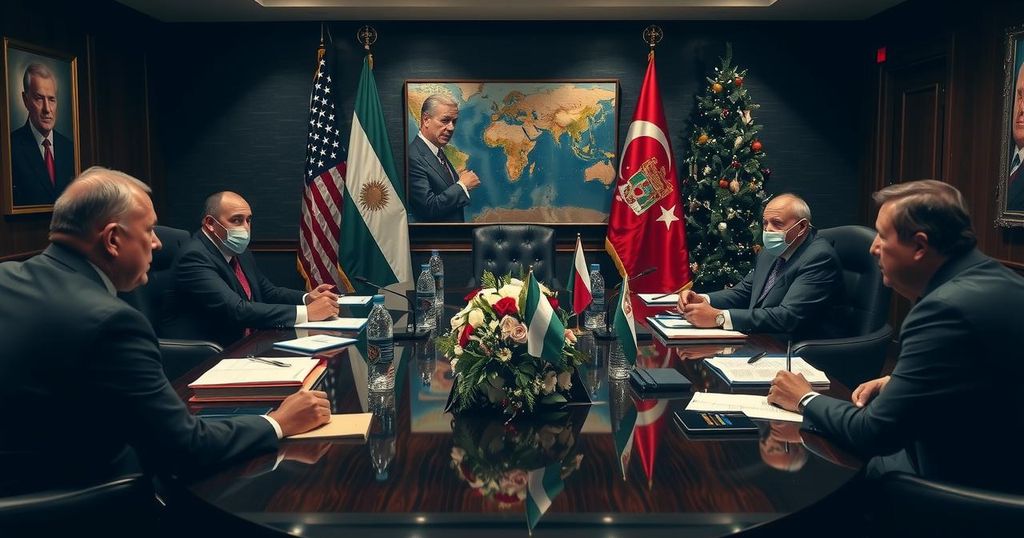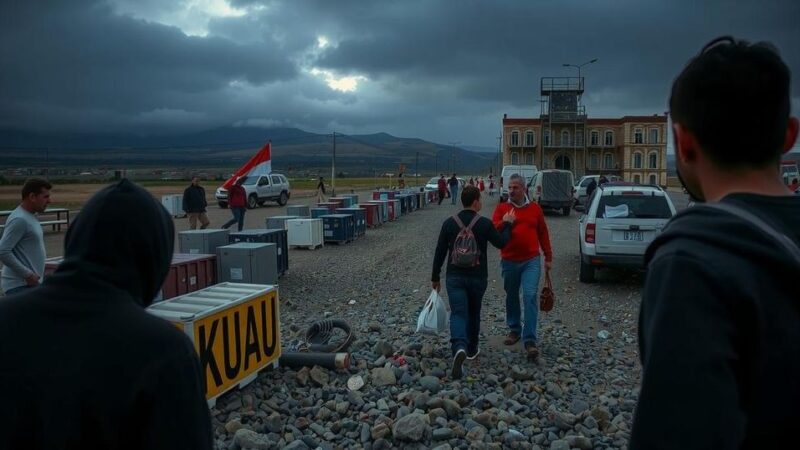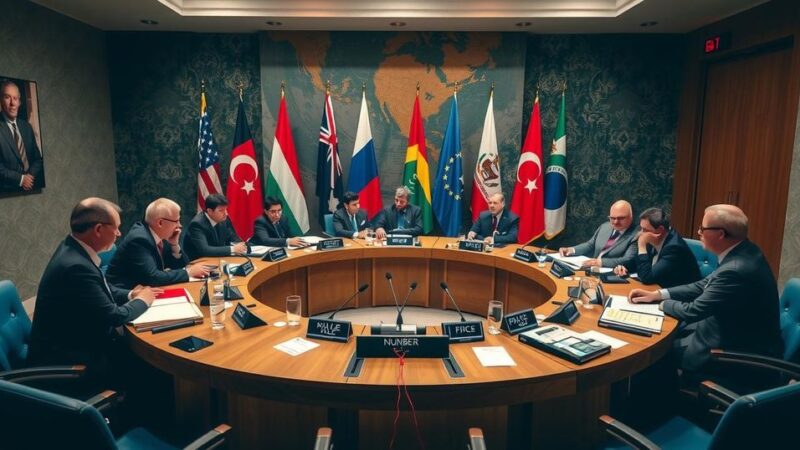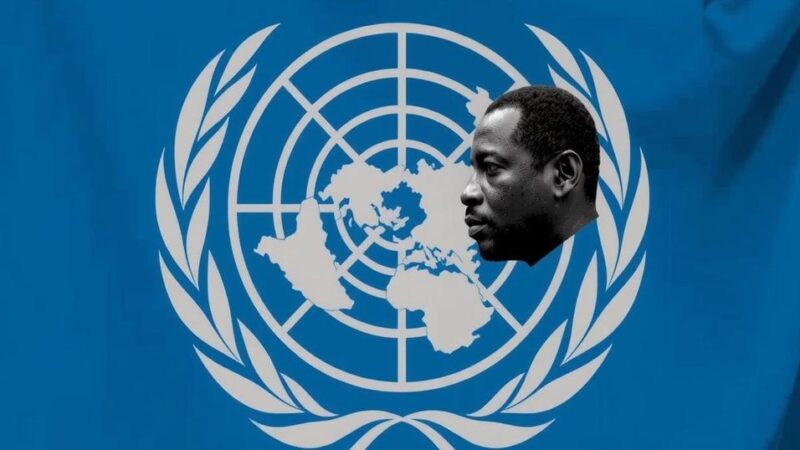Leaders of the G20 convened in Rio de Janeiro, advocating for comprehensive ceasefires in Gaza and Lebanon, while also addressing poverty, hunger, and climate change. President Lula emphasized the political roots of these crises, gaining support for a Global Alliance Against Hunger and Poverty. The summit encapsulated urgent global challenges, including the situation in Ukraine, yet lacked explicit condemnation of Russian actions. The discourse reflects a shared commitment to international cooperation despite diverse national perspectives.
The G20 summit convened in Rio de Janeiro, where leaders from major economies advocated for comprehensive ceasefires in both Gaza and Lebanon, addressing escalating humanitarian crises. President Luiz Inacio Lula da Silva emphasized tackling poverty and hunger, framing them as consequences of political choices, rather than mere scarcity. The discussions also featured cooperation on climate change and equitable taxation for ultra-high-net-worth individuals. Notably, the summit similarly called for a unified global response to the situation in Ukraine, although the final declaration did not explicitly condemn Russian aggression. During the summit, the G20 addressed several pressing global issues, particularly the humanitarian crises in Gaza and Lebanon. The leaders collectively expressed deep concern regarding the humanitarian situation in Gaza, coinciding with a US-driven initiative for a permanent ceasefire contingent on the release of hostages held by Hamas. Additionally, they underscored the need to establish a ceasefire along the Blue Line to facilitate citizens’ safe return home. President Lula’s advocacy for a Global Alliance Against Hunger and Poverty gained significant support, with participation from 81 countries, symbolizing a diverse coalition aimed at addressing systemic poverty and hunger. The context of these discussions is heightened by the increasing global tensions, particularly surrounding the ongoing Russia-Ukraine conflict. While the summit welcomed constructive peace initiatives regarding Ukraine, the absence of clear condemnation of Russian actions elicited attention. Moreover, with President Putin absent due to an arrest warrant, Foreign Minister Sergey Lavrov represented Russia at the summit. The multifaceted dialogues reflecting on climate change, social equity, and geopolitical challenges illustrate the G20’s aim to foster a cooperative international effort to address these complex and interwoven issues.
The G20, a group encompassing the world’s major economies, serves as a platform for addressing global challenges. It aims to foster international cooperation on economic and social issues, ranging from climate change to geopolitical tensions. Recently, the summit became pivotal due to escalating conflicts in Gaza and Lebanon, along with the repercussions of the Russia-Ukraine war. The emphasis on poverty alleviation, climate finance, and pacifying regional conflicts underlines a growing acknowledgment of the interconnectedness of these issues in shaping global stability. President Luiz Inacio Lula da Silva’s leadership brought renewed focus to social equity matters, highlighting the need for collaborative solutions.
In conclusion, the G20 leaders’ calls for comprehensive ceasefires in Gaza and Lebanon reflect a consensus on addressing immediate humanitarian needs amidst broader global tensions. The summit underscored critical issues such as poverty and climate change, with a notable emphasis on political accountability for societal challenges. As the global landscape evolves, the G20 continues to serve as a vital forum for international coordination and dialogue, although the effectiveness of its resolutions remains to be seen amidst diverging national interests.
Original Source: www.aljazeera.com






